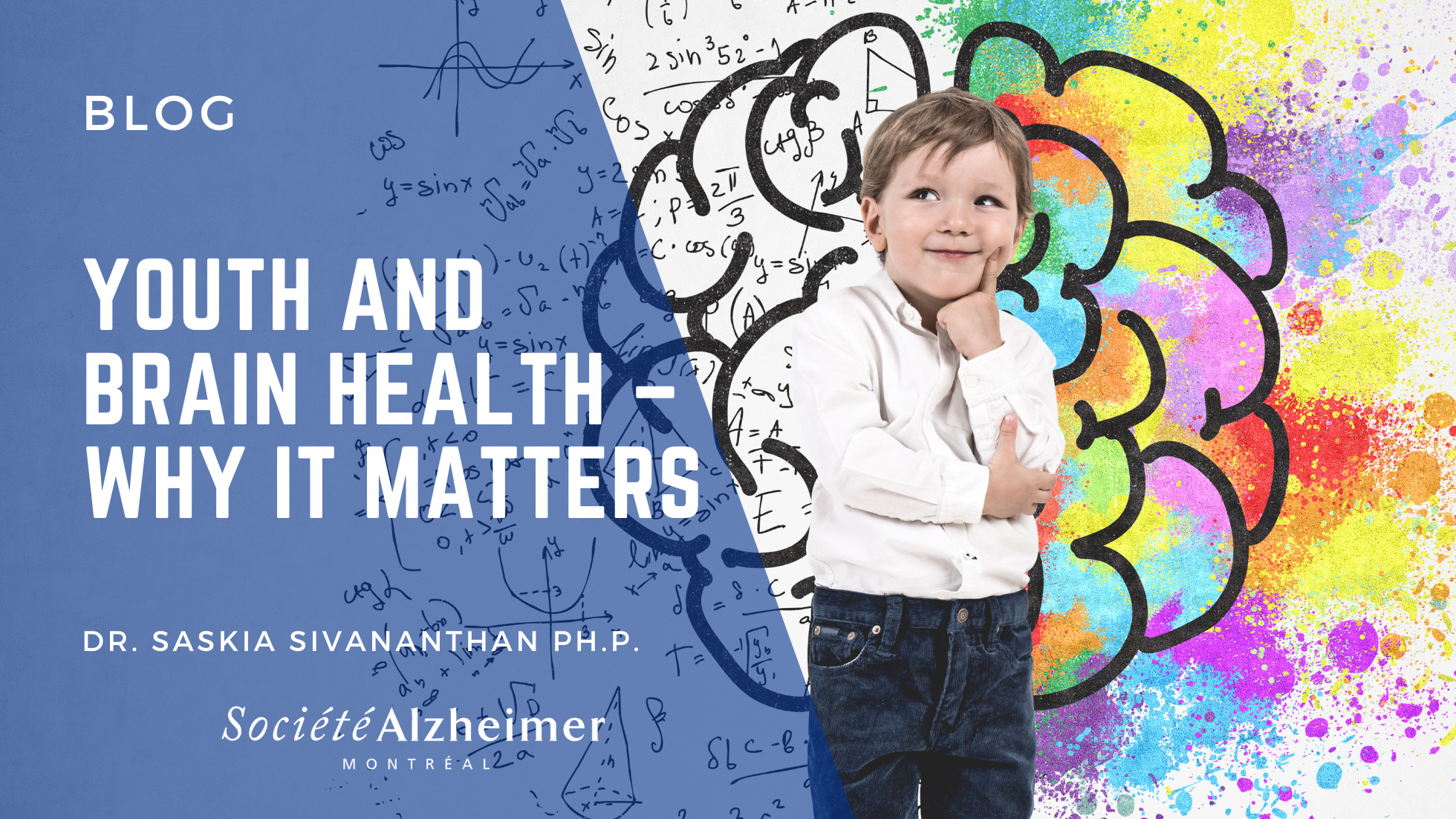Youth and brain health – why it matters

Dementia and cognitive impairment don’t seem like the kinds of diseases to worry about in young people. But research indicates that habits, lifestyle choices, and environmental factors from early life can carry long-term risks for dementia and cognitive impairment in later life.
What does this mean in practice? Dementia occurs because of exposure to many risk factors throughout your life, not just when you’re older. While some of these risk factors can’t be changed (age, sex, genetics), other risk factors like poor eating habits and inactivity are modifiable. And the earlier the better to make those changes for overall brain health.
Early brain health and habits – what’s good for the heart is good for the head
Creating healthy habits in children and teenagers has been shown to support lifestyles that are beneficial as they become adults. The opposite is also true about unhealthy habits. There’s no better time to start on building brain health than when children are young.
Over three decades of research show that childhood influences contribute to the risk of developing heart disease later in life. These include poor diet, obesity, lack of exercise, smoking exposure, high blood pressure, and diabetes. For example, children who overeat and gain extra weight and body fat and have increased heart health risks that follow them into adulthood.
These influences are also linked to dementia and overall brain health. The saying ‘what is good for your heart is good for your head’ has proven to be much more important than previously thought.
The same goes for leading an active lifestyle. In fact, physical activity in children and youth has been linked to lower heart health risk in early adulthood. Similarly, exercise has been linked to a lower risk of dementia and better overall brain health. Parents who are physically active with their children doubly benefit by building their own heart and brain health, and creating bonding opportunities with their kids while modelling a healthy lifestyle.
Preventing reoccurring brain trauma – put a helmet on it
While physical activity is important for both heart health and brain health, reoccurring head trauma leading to concussions and traumatic brain injury carries the risk of long-term consequences. This includes developing cognitive impairment, which can lead to dementia later in life.
Early research indicates that the young brain is very vulnerable as it continues to develop. For this and other reasons, even mild repetitive head injury should be treated with caution, particularly children who participate in boxing, hockey, soccer, and football. The best approach is to wear protective head gear or choose non-contact sports or those that limit head contact with protective equipment.
Much more to learn
While we better understand dementia risk in older adults, more evidence is pointing to the value of making healthy lifestyle choices and taking precautions against dementia in early life. There is still a lot we don’t know. The effects of premature hearing loss, changes in social connectedness due to the influences of social media, increases in vaping as opposed to smoking, and excessive screen exposure in children and youth all require further research on their long-term impact on cognitive health.
Until then, developing healthy eating habits, adopting a physically active lifestyle, and reducing the risk of head trauma all support good brain health, which is a winning strategy no matter what.
Dr. Saskia Sivananthan is a leading data scientist and neuroscientist specializing in dementia and other neurological illnesses. An Affiliate Professor at McGill University, she consults with senior health experts from around the world, offering the benefits of years of experience in the field.
